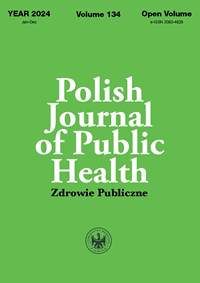Organisation of the Turkish healthcare system
DOI:
https://doi.org/10.12923/2083-4829/2024-0022Keywords:
Turkish healthcare system, organization of the health care system, protecting patients’ healthAbstract
It is widely believed that the Turkish healthcare system is robust, from an organisational perspective. Therefore, it proves capable of providing a wide range of services as it focuses on protecting patients’ health and on improving their quality of life. Indeed, today’s Turkey is a country that has made evident progress in improving healthcare infrastructure, increasing access to medical care, as well as developing medical education and research, accreditation and certification. In view of this, Turkey has improved the delivery of most healthcare services as a consequence of the Health Transformation Programme between 2003 and 2013. Accordingly, the following advantages of the Turkish healthcare system are most often cited: an extensive public healthcare sector; a well-integrated private healthcare sector; a wide range of healthcare services that are relatively cheap; universal health insurance for all; and the provision of healthcare for immigrants. Meanwhile, the shortcomings of the Turkish healthcare system are usually considered to be the shortage of medical staff, which mainly concerns doctors; long waiting times for service in public healthcare facilities, including in primary care; often limited healthcare services in rural areas; and limitations in the treatment of certain diseases, above all mental illness.
References
1. Seçtim H. An evaluation on the health transformation programme. J Manag Politic Sci. 2019;1(1):117-33.
2. Uğur A, Mıynat M. Political economy of public-private partnerships. JEM. 2014;21(2):21.
3. Healthcare in Turkey – statistics & facts. [https://www.statista.com/topics/4782/health-care-in-turkey/#topicOverview] (access: 15.08.2024 r).
4. Sülkü SN. Provision of health services, financing and health expenditures before and after the health transformation program in Turkey. Ministry of Finance Strategy Development Directorate, Ankara: 2011 p. 20-22,33.
5. Suchecka J. Economics of health and social care. Warsaw; 2010. p. 32.
6. Wlodarczyk WC. Definition of health systems. In: W.C. Wlodarczyk. Health systems. Warsaw; 2021. p. 41.
7. [https://getgoldenvisa.com/turkey-healthcare-system] (access: 15.08.2024).
8. Onat A. Risikofaktoren und Herz-Kreislauf-Erkrankungen in der Türkei. Atherosklerose. 2001;156 (1):1-10.
9. Özer N, Külükap M, Tokgözoglu L, et al. Data on smoking in Turkey: Systematic review, meta-analysis and meta-regression of epidemiologische studies on kardiovaskuläre risiko factors. Turk Kardioyol Dern Ars. 2018;46(7):602-12.
10. Tokuc B. Which threats to global health pose a problem for Turkey’s health? Balkan Med J. 2019;36(3):152-4.
11. Health Profile: Turkey. Data Sources: WHO, CDC, World Bank, UN. [https://www.worldlifeexpectancy.com/pl/country-health-profile/turkey] (access: 25.08.2024 r).
12. Erdem H, Akova M. Leading infectious diseases problems in Turkey. Clinical Microbiology and Infection. 2012;18(11):1056-67.
13. Türkiye earthquake: external situation. WHO. Report. 2023;5:13-9. [https://www.who.int/europe/publications/i/item/WHO-EURO-2023-7145-46911-68823] (access: 15.08.2024).
14. Fullman N, Yearwood J, Abay SM. Measuring performance on the Healthcare Access and Quality Index for 195 countries and territories and selected subnational locations: a systematic analysis from the Global Burden of Disease Study 2016. Lancet. 2018;391:2236-71.
Downloads
Published
Issue
Section
License
Copyright (c) 2024 Authors

This work is licensed under a Creative Commons Attribution-NonCommercial-NoDerivatives 3.0 Unported License.


